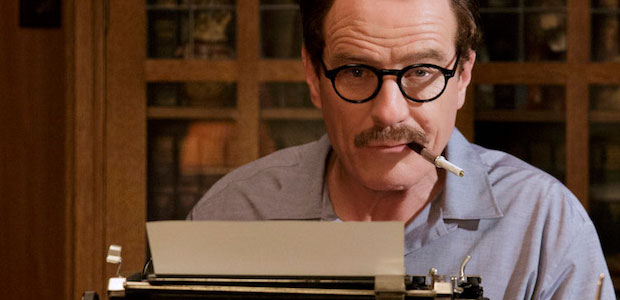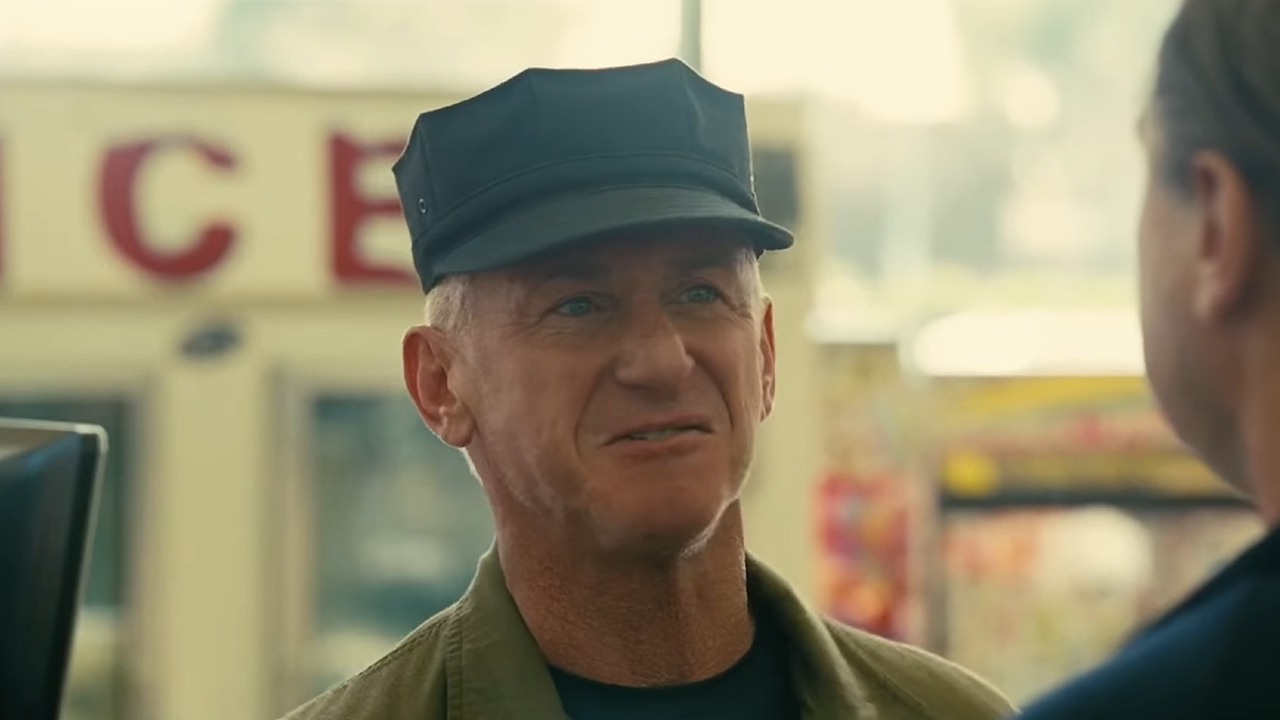The story of Dalton Trumbo is a long and complicated one – filled with controversy and rebellious attitudes. A fascinating figure who supported the tenants of Communism while also constantly driving towards wealth and success, the legendary filmmaker’s battle with the practice of blacklisting in Hollywood unfolded over the course of multiple decades, with many historically notable events occurring during the fight. To the credit of director Jay Roach, the new biopic about the Spartacus screenwriter, Trumbo, is impressively comprehensive, hitting on just about every important event that occurred during the Communist witch hunt of the mid-20th century – but it’s this same quality that also winds up hurting the film, with it often feeling more like a rote historical reenactment than emotional and drama-driven storytelling.
Based on a screenplay by John McNamara, the film begins in 1947 and finds Dalton Trumbo (Bryan Cranston) at the pinnacle of his career in Hollywood, signing a deal that makes him the highest paid screenwriter in the movie world. He spends days earning accolades and big bucks for his work, and nights meeting with politically likeminded people in the industry to talk about how the world can change and what they can personally do about it. All is well and good, until the news comes down the wire that the House of Unamerican Activities Committee has begun to take an interest in Hollywood, and begins rooting out individuals who they believe to be Soviet sympathizers. When Trumbo is called to testify and asked to name names, he refuses – and the consequences come in the form of not only jail time for obstruction of justice, but also blacklisting in the studio system.
With right wing gossip columnist Hedda Hopper (Helen Mirren) in the ear of every major movie executive and threatening to tear them down should they hire any communist filmmakers or actors, Trumbo is forced to get creative in his attempts to both write and earn an income to support his family. Unwilling to just disappear from the industry and let his voice be silenced, he begins writing scripts with friend’s names on them (the story behind Roman Holiday), but eventually advances to churning out scripts for low-rent production houses under various pen names. Through it all, Trumbo faces pressures from the government, the risk of being caught, and his overworked family (Diane Lane, Elle Fanning, Becca Nicole Preston, Mattie Liptak), but is never willing to let go of his ideals or passion and continues to strive for progress.
Discounting the title cards in the end credits that fill in the blanks of what happened after the movie’s narrative ends, Trumbo covers a span of 23 years, and the unfortunate truth is that you really feel that length while watching the movie. That’s not to say that the film is a slog – as it is compelling and driven by interesting characters – but it’s structured and unfolds more like a beat-by-beat history lesson than a crafted work that cuts deep into what was important about Dalton Trumbo as a man and what he went through. There are some tremendous beats that, if specifically focused on, could have made for a much more interesting approach to the narrative – such as his relationship with his more politically moderate, cancer-striken screenwriter friend Arlen Hird (Louis CK), or the fascinatingly weird director of Exodus, Otto Preminger (Christian Berkel) – but instead, the feature takes a much more standard tactic that doesn’t feel like it takes full advantage of the story’s potential.
With the script not doing much to make Trumbo pop, that pressure is pushed to the extremely talented ensemble of actors – who do actually take the film to the goal line and ultimately make it watchable. Leading the pack, naturally, is Bryan Cranston, who does wonderful work with his portrayal – particularly in selling Trumbo’s penchant for replicating his voice as a writer in his own speech (making everything sound like a proclamation from the mountain top). As the film progresses, however, it constantly reveals the presence of more and more of the industry’s best supporting players, and each of them puts in some great character work – from Michael Stuhlbarg as politically torn movie star Edward G. Robinson, to John Goodman as “I don’t give a fuck” producer Frank King. They’re the ones that keep the feature fun and entertaining as it plays out its extended historical tale.
The story of Dalton Trumbo is an important and significant one in Hollywood history, and Jay Roach’s film does its job telling it – just not in an overly fascinating or creative way. It’s worth seeking out for the performances alone, but in a season that’s full of biopics, it’s also not exactly a standout.
Your Daily Blend of Entertainment News

Eric Eisenberg is the Assistant Managing Editor at CinemaBlend. After graduating Boston University and earning a bachelor’s degree in journalism, he took a part-time job as a staff writer for CinemaBlend, and after six months was offered the opportunity to move to Los Angeles and take on a newly created West Coast Editor position. Over a decade later, he's continuing to advance his interests and expertise. In addition to conducting filmmaker interviews and contributing to the news and feature content of the site, Eric also oversees the Movie Reviews section, writes the the weekend box office report (published Sundays), and is the site's resident Stephen King expert. He has two King-related columns.

